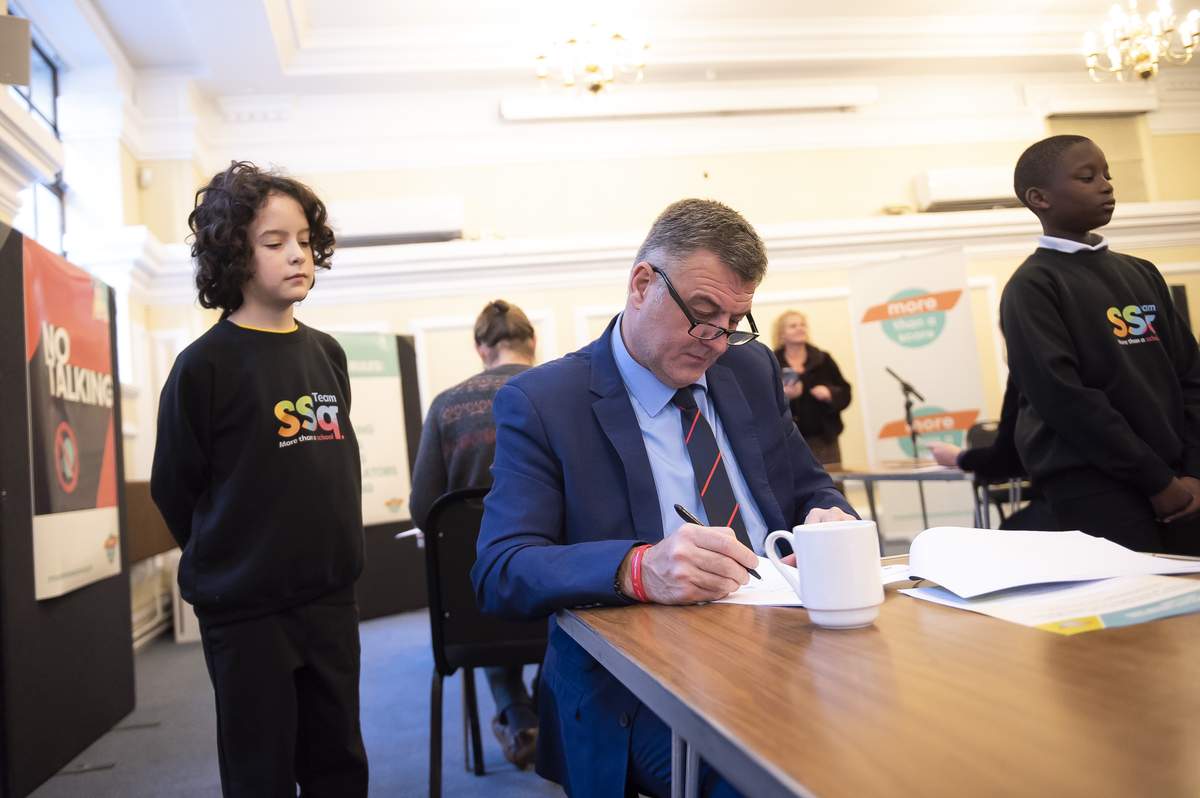Heavy Rains Cause Deadly Flooding And Landslides in Kinshasa
Over 140 people in the Democratic Republic of Congo (DRC) have died after heavy rains turned the country’s capital, Kinshasa, into a disaster area on Tuesday.
Close to 40,000 homes were flooded. The rains caused huge landslides which tore apart houses and destroyed roads. A massive sinkhole washed away a large section of the N1 highway, which connects the capital to the port city of Matadi.
😕
This image has not been loaded because of your cookie choices. To view the content, you can accept 'Non-necessary' cookies.
Over 140 people in the Democratic Republic of Congo (DRC) have died after heavy rains turned the country’s capital, Kinshasa, into a disaster area. Close to 40,000 homes were flooded. The rains caused huge landslides which tore apart houses and destroyed roads (above).
The crowded conditions in Kinshasa – home to 15 million people – made this disaster worse. In some of the worst affected areas, many simple houses had been built near rivers or on hillsides, often without permission.
The DRC government blames the climate crisis for the disaster. Scientists say that climate change has made Africa’s rainy season 20% wetter than normal this year. Several countries in central and western Africa have had terrible floods. In October, flooding in Nigeria forced over a million people from their homes.
😕
This image has not been loaded because of your cookie choices. To view the content, you can accept 'Non-necessary' cookies.
The crowded conditions in Kinshasa – home to 15 million people – made this disaster worse. In some of the worst affected areas, many simple houses had been built near rivers or on hillsides, often without permission.
South Koreans Will Become Younger Next Year
Last week, South Korea’s Parliament passed new bills that will make the country’s citizens younger next year. That’s because South Korea is moving from three different systems of ages to using the international age system for everything official.
Normally, people use their “Korean age” when discussing age in South Korea. In this system, babies are one year old when they’re born, and get a year older each January 1. Under this system, a baby born on December 31 is one year old, and turns two the next day.
The calendar system is similar, but babies start at zero instead of one. South Korea uses calendar age for deciding things like when someone’s old enough to vote or join the army.
😕
This image has not been loaded because of your cookie choices. To view the content, you can accept 'Non-necessary' cookies.
South Korea’s Parliament has passed new bills that will make the country’s citizens younger next year. The country is moving from three age systems to using the international age system for everything. Everyone’s “international age” is a year or two younger than their “Korean age”.
But for most official business, South Koreans use the same international system used by most countries: babies are zero at birth and get a year older on each birthday.
Having three systems has led to much confusion. Over 80% of South Koreans say they’d prefer to use the international system for everything. It looks like they’ll get their wish. The new bills aren’t laws yet, but they’re expected go into effect in June, 2023.
Members of Parliament Take Student Test – And Fail
Students finishing Year 6 in the United Kingdom are required to take challenging tests, called SATs. There’s one exam for math, and another for reading and writing. The tests put lots of pressure on students who are just 10 and 11 years old.
To help lawmakers understand how challenging these tests are, a group called “More Than A Score” got several members of Parliament (MPs) to take the exams.

(Source: More Than a Score.)
When the results were in, it didn’t look too good for the MPs. Only 44% passed the math exam, and 50% passed the reading and writing test. Year 6 students across the UK did far better this year, scoring over 70% on both tests.
The event wasn’t meant to embarrass the MPs. Organizers hoped to show that the tests aren’t a fair way to measure how students are learning and growing. As one MP put it, “We’re not educating young people to pass tests. We should want to give them a love of learning.”
